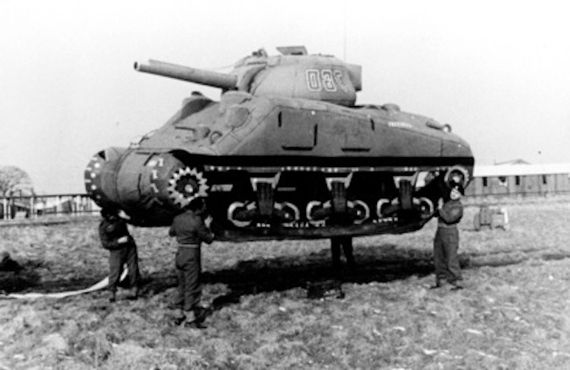Remembering the D-day Components, 6 June 1944
- Dennis L. Peterson

- Jun 6, 2025
- 3 min read
It's been 81 years now since the young American soldiers parachuted behind the German lines and stormed the beaches of Normandy, France. It was the largest combined air and amphibious invasion in history. Although all of the other invasions that occurred during World War II in all theaters of the war had their own D-days, it was and always will be the invasion of Normandy that will be remembered as "D-day."

The Allied military leaders had learned a lot of valuable lessons from the earlier Allied invasions elsewhere. Inexperienced American troops got their first taste of combat in their invasion of North Africa (Operation Torch). After the Yanks' debacle at the Kasserine Pass, British troops didn't have a high opinion of their abilities, but over the next several months all that changed.
The Americans went on to apply the lessons learned in North Africa and proved themselves to be solid, dependable, and hard-fighting warriors in the invasion of Sicily (Operation Husky) and the two landings in Italy, first at Salerno (Operation Avalanche) and then at Anzio (Operation Shingle). And they cemented that reputation during their drive northward through Italy.
The Normandy invasion and the preparations for it were in three critical parts. The actual landing, by both air and sea, was known as Operation Overlord, and it is generally well known because media cover it extensively every June 6.

No less critical, however, but less well known was Operation Neptune, the naval component of the invasion, including naval bombardment designed to soften up the enemy before the troops stepped ashore. It involved more than 1,200 warships, 4,000 landing craft, and numerous merchant vessels. Battleships, cruisers, destroyers, and patrol boats pounded the German defenders for hours before and even during the landings. The destroyers were especially active, sailing back and forth in front of the beach so close that they risked running aground and received rifle fire from the defenders.
But the most intriguing (to me anyway) aspect of the invasion plan was Operation Fortitude, the effort to make the Germans think that the coming invasion (that it was definitely coming was no secret, but the place and time were) would occur at Pas-de-Calais, not on the Normandy coast.

The American general whom the Germans knew, feared, and respected most was George Patton. He had led U.S. forces in North Africa and on Sicily, and the Germans knew him to be a daring, hard-driving warrior whose troops could fight. The Allies put Patton in command of the 23rd Headquarters Special Troops and based them in England opposite Pas-de-Calais. The Germans were sure that the invasion would come from that base and land at Pas-de-Calais and that Patton would be the man commanding it.

The 23rd, however, was a purely fictitious unit. It was simply a ruse. It became known as the "Ghost Army." The 23rd created inflatable military vehicles--tanks, trucks, war planes, etc.--and set them out in plain view of any German spies or reconnaissance planes and even used real tanks to leave tracks in the dirt to make it look as though the inflatables had made them.

The Ghost Army also transmitted fake radio traffic, making it seem as though its various units were talking to each other in training for and planning the invasion of Pas-de-Calais. They allowed photos of Patton to be published in English papers along with articles about the presumptive buildup of troops, equipment, and supplies for the invasion.
Thanks to these and other similar deceptions, the Germans took the bait, hook, line, and sinker. They kept most of their tanks and best troops near Pas-de-Calais. Even after the landings at Normandy were proceeding, Hitler refused to allow his panzer divisions to move southward to defend against the Allies.
While we remember and honor the brave men who stormed the beaches of Omaha and Utah and the paratroopers of the 82nd and 101st Airborne Divisions, let's not forget the sailors of Operation Neptune or the "ghosts" of the imaginary 23rd Headquarters Special Troops. They all played critical roles without which D=day might not have been so successful.



Comments